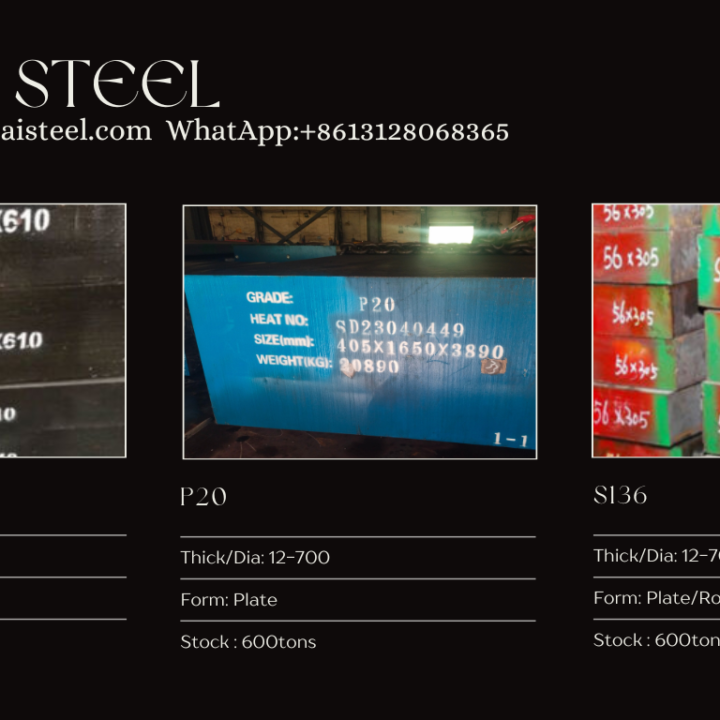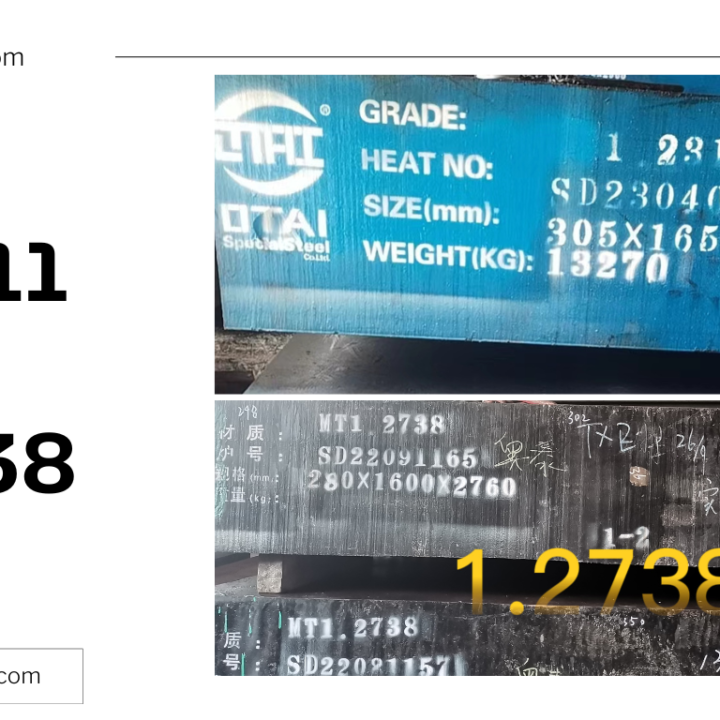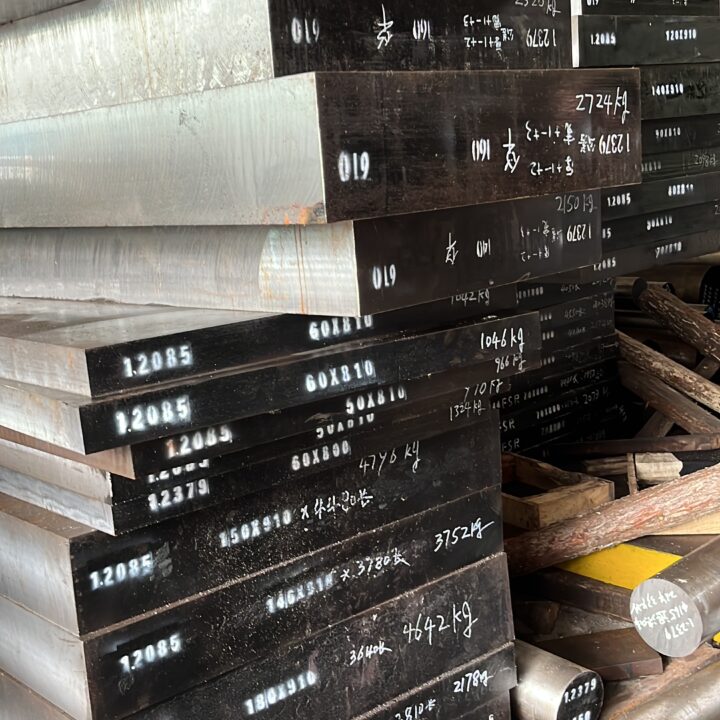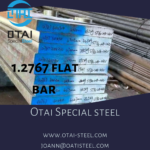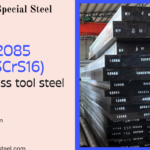Stainless steel 1.2083 Standard
1.2083 Steel Equivalents:
| ISO EN 4957 | ASTM A681 |
| 1.2083 / X40Cr14 | 420 |
Steel 1.2083 Chemical Composition:
| C | Si | Mn | S | P | Cr | |
| 420 | Min0.15 | Max1.00 | Max1.00 | MAX0.030 | MAX0.040 | 12.00-14.00 |
| 1.2083 | 0.36-0.42 | Max1.00 | Max1.00 | MAX0.030 | MAX0.030 | 12.50-14.50 |
1.2083 Technical Information:
| Density in kg/dm3 | 7,80 |
| Young’s modulus (103 MPa) | 200 |
| Thermal conductivity at 20°C in W/(m K) | 17,0 |
| Specific heat capacity at 20°C in J/(kg K) | 460 |
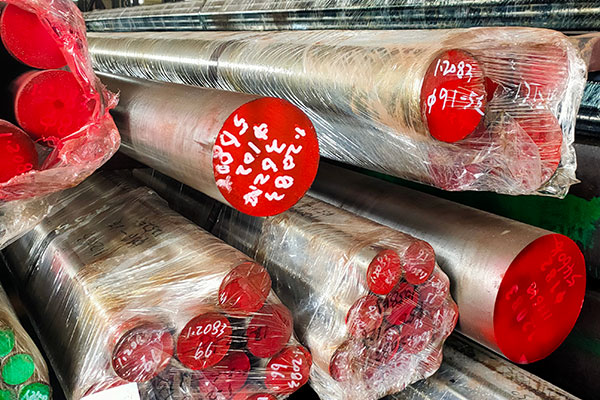 DIN1.2083 Heat Treatment:
DIN1.2083 Heat Treatment:
- Annealed:
Under protective conditions, heat to 780°C and then cool to 650°C in the furnace at a rate of 10°C per hour, and then cool in the air. - Stress relief:
After rough machining, it must be heated to 650°C, soaked for 2 hours, slowly cooled to 500°C, and then cooled in the air. - Hardening:
Preheating temperature: 600-850℃
Quenching temperature: 980-1050℃
1.2083 mold steel delivery status:
- Soft annealing hardness: 210-241HB;
- Quenching and Tempring (QT) hardness: 30-35HRC;
- Quenching hardness: 48-55HRC.
Material Properties:
- Mechanical Strength and Toughness:
- Corrosion Resistance:
- Machinability:
- Humid Atmosphere Compatibility:
- Wear and Corrosion Resistance:
- Dimensional Stability:
1.2083 Steel Applications: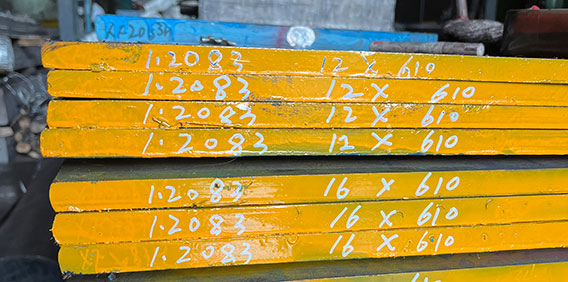
1.2083 Steel Size and Customization:
1.2083 Steel Price and Cost-effectiveness:
Conclusion:
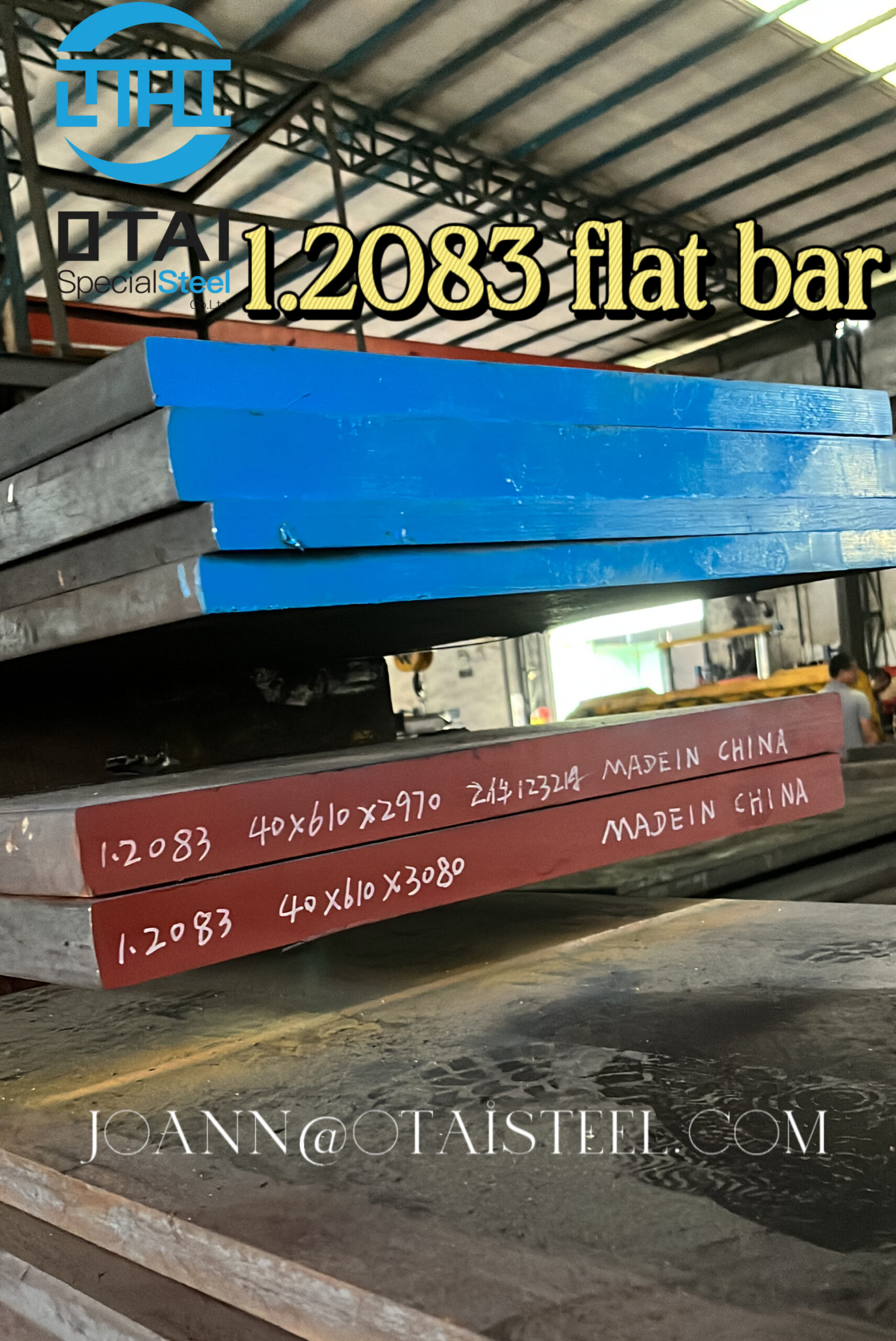 Frequently Asked Questions (FAQs)
Frequently Asked Questions (FAQs)
- Is 1.2083 material suitable for high-precision molds?
Absolutely, 1.2083 material’s exceptional hardness and dimensional stability make it an excellent choice for crafting high-precision molds.
-
- How does 1.2083 steel compare to other stainless steel alloys?
While it shares similarities with AISI 420 stainless steel, 1.2083 boasts its own unique combination of properties, making it well-suited for specific applications.
- How does 1.2083 steel compare to other stainless steel alloys?
- Can 1.2083 material be used for medical instruments?
Certainly, the corrosion resistance and dimensional stability of 1.2083 steel make it an excellent choice for crafting high-quality medical instruments.
- Where can I find reliable suppliers of 1.2083 material?
Reputable suppliers in the metallurgical industry can provide accurate quotes and ensure the quality and authenticity of 1.2083 steel. Otai special stel supply 1.2083 steel more than 10 years,and stock 1.2083 steel round bar more than 1000tons.
Want to know more about the 1.2083 steel details and 1.2083 steel stock list ?
Pls contact : Joann
E-mail:joann@otaisteel.com
WhatsApp:+8613128068365
